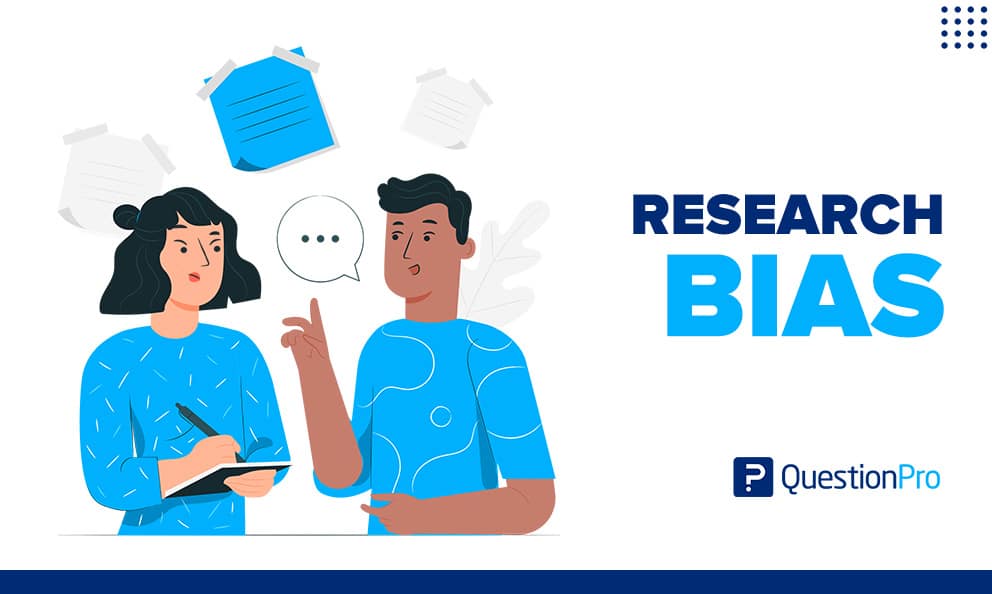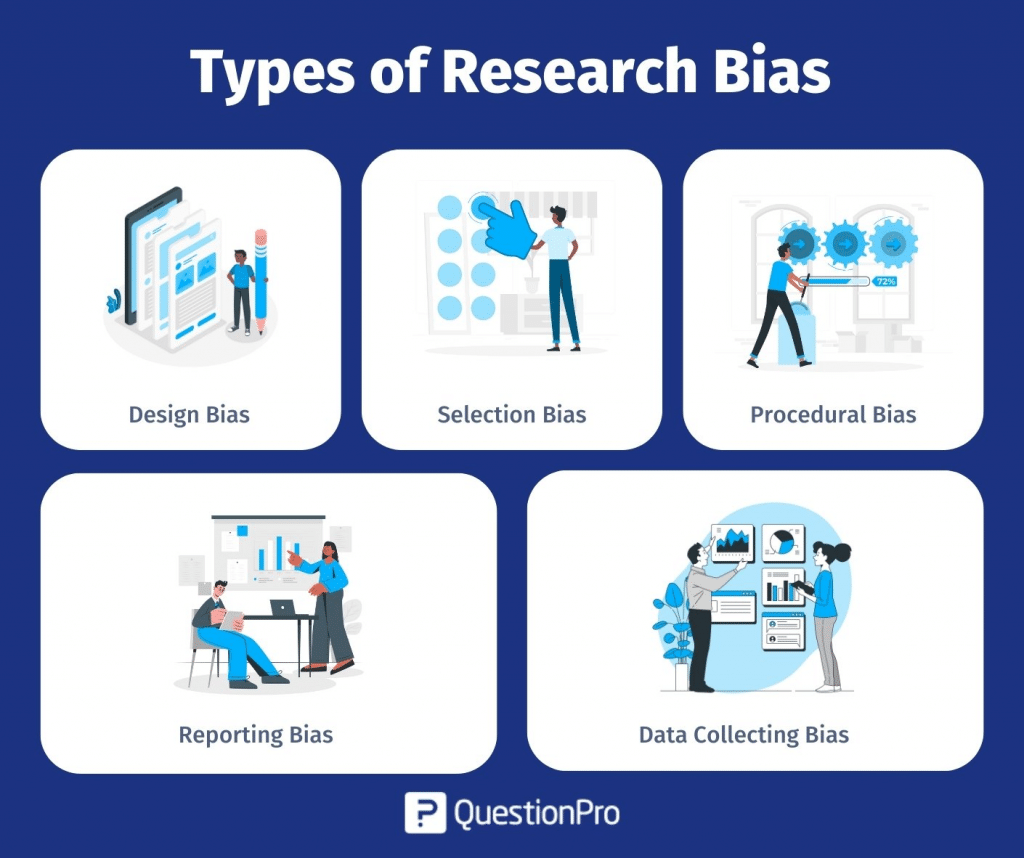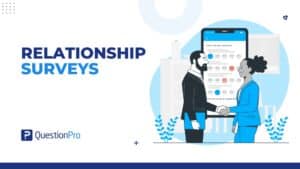
The researcher sometimes unintentionally or actively affects the process while executing a systematic inquiry. It is known as research bias, and it can affect your results just like any other sort of bias.
When it comes to studying bias, there are no hard and fast guidelines, which simply means that it can occur at any time. Experimental mistakes and a lack of concern for all relevant factors can lead to research bias.
One of the most common causes of study results with low credibility is study bias. Because of its informal nature, you must be cautious when characterizing bias in research. To reduce or prevent its occurrence, you need to be able to recognize its characteristics.
This article will cover what it is, its type, and how to avoid it.
What is research bias?
Research bias is a technique in which the researchers conducting the experiment modify the findings to present a specific consequence. It is often known as experimenter bias.
Bias is a characteristic of the research technique that makes it rely on experience and judgment rather than data analysis. The most important thing to know about bias is that it is unavoidable in many fields. Understanding research bias and reducing the effects of biased views is an essential part of any research planning process.
For example, it is much easier to become attracted to a certain point of view when using social research subjects, compromising fairness.
How does research bias affect the research process?
Research bias can majorly affect the research process, weakening its integrity and leading to misleading or erroneous results. Here are some examples of how this bias might affect the research process:
Distorted research design
When bias is present, study results can be skewed or wrong. It can make the study less trustworthy and valid. If bias affects how a study is set up, how data is collected, or how it is analyzed, it can cause systematic mistakes that move the results away from the true or unbiased values.
Invalid conclusions
It can make it hard to believe that the findings of a study are correct. Biased research can lead to unjustified or wrong claims because the results may not reflect reality or give a complete picture of the research question.
Misleading interpretations
Bias can lead to inaccurate interpretations of research findings. It can alter the overall comprehension of the research issue. Researchers may be tempted to interpret the findings in a way that confirms their previous assumptions or expectations, ignoring alternate explanations or contradictory evidence.
Ethical concerns
This bias poses ethical considerations. It can have negative effects on individuals, groups, or society as a whole. Biased research can misinform decision-making processes, leading to ineffective interventions, policies, or therapies.
Damaged credibility
Research bias undermines scientific credibility. Biased research can damage public trust in science. It may reduce reliance on scientific evidence for decision-making.
Types of research bias with examples
Bias can be seen in practically every aspect of quantitative research and qualitative research, and it can come from both the survey developer and the participants. The sorts of biases that come directly from the survey maker are the easiest to deal with out of all the types of bias in research. Let’s look at some of the most typical research biases.

Design bias
Design bias happens when a researcher fails to capture biased views in most experiments. It has something to do with the organization and its research methods. The researcher must demonstrate that they realize this and have tried to mitigate its influence.
Another design bias develops after the research is completed and the results are analyzed. It occurs when the researchers’ original concerns are not reflected in the exposure, which is all too often these days.
For example, a researcher working on a survey containing questions concerning health benefits may overlook the researcher’s awareness of the sample group’s limitations. It’s possible that the group tested was all male or all over a particular age.
Selection bias or sampling bias
Selection bias occurs when volunteers are chosen to represent your research population, but those with different experiences are ignored.
In research, selection bias manifests itself in a variety of ways. When the sampling method puts preference into the research, this is known as sampling bias. Selection bias is also referred to as sampling bias.
For example, research on a disease that depended heavily on white male volunteers cannot be generalized to the full community, including women and people of other races or communities.
Procedural bias
Procedural bias is a sort of research bias that occurs when survey respondents are given insufficient time to complete surveys. As a result, participants are forced to submit half-thoughts with misinformation, which does not accurately reflect their thinking.
Another sort of study bias is using individuals who are forced to participate, as they are more likely to complete the survey fast, leaving them with enough time to accomplish other things.
For Example, If you ask your employees to survey their break, they may be pressured, which may compromise the validity of their results.
Publication or reporting bias
A sort of bias that influences research is publication bias. It is also known as reporting bias. It refers to a condition in which favorable outcomes are more likely to be reported than negative or empty ones. Analysis bias can also make it easier for reporting bias to happen.
The publication standards for research articles in a specific area frequently reflect this bias on them. Researchers sometimes choose not to disclose their outcomes if they believe the data do not reflect their theory.
As an example, there was seven research on the antidepressant drug Reboxetine. Among them, only one got published, and the others were unpublished.
Measurement of data collecting bias
A defect in the data collection process and measuring technique causes measurement bias. Data collecting bias is also known as measurement bias. It occurs in both qualitative and quantitative research methodologies.
Data collection methods might occur in quantitative research when you use an approach that is not appropriate for your research population. Instrument bias is one of the most common forms of measurement bias in quantitative investigations. A defective scale would generate instrument bias and invalidate the experimental process in a quantitative experiment.
For example, you may ask those who do not have internet access to survey by email or on your website.
Data collection bias occurs in qualitative research when inappropriate survey questions are asked during an unstructured interview. Bad survey questions are those that lead the interviewee to make presumptions. Subjects are frequently hesitant to provide socially incorrect responses for fear of criticism.
For example, a topic can avoid coming across as homophobic or racist in an interview.
Some more types of bias in research include the ones listed here. Researchers must understand these biases and reduce them through rigorous study design, transparent reporting, and critical evidence review:
- Confirmation bias: Researchers often search for, evaluate, and prioritize material that supports their existing hypotheses or expectations, ignoring contradictory data. This can lead to a skewed perception of results and perhaps biased conclusions.
- Cultural bias: Cultural bias arises when cultural norms, attitudes, or preconceptions influence the research process and the interpretation of results.
- Funding bias: Funding bias takes place when powerful motives support research. It can bias research design, data collecting, analysis, and interpretation toward the funding source.
- Observer bias: Observer bias arises when the researcher or observer affects participants’ replies or behavior. Collecting data might be biased by accidental clues, expectations, or subjective interpretations.
LEARN ABOUT: Theoretical Research
How QuestionPro helps in reducing bias in a research process?
QuestionPro offers several features and functionalities that can contribute to reducing bias in the research process. Here’s how QuestionPro can help:
Randomization
QuestionPro allows researchers to randomize the order of survey questions or response alternatives. Randomization helps to remove order effects and limit bias from the order in which participants encounter the items.
Branching and skip logic
Branching and skip logic capabilities in QuestionPro allow researchers to design customized survey pathways based on participants’ responses. It enables tailored questioning, ensuring that only pertinent questions are asked of participants. Bias generated by such inquiries is reduced by avoiding irrelevant or needless questions.
Diverse question types
QuestionPro supports a wide range of questions kinds, including multiple-choice, Likert scale, matrix, and open-ended questions. Researchers can choose the most relevant question kinds to get unbiased data while avoiding leading or suggestive questions that may affect participants’ responses.
Anonymous responses
QuestionPro enables researchers to collect anonymous responses, protecting the confidentiality of participants. It can encourage participants to provide more unbiased and equitable feedback, especially when dealing with sensitive or contentious issues.
Data analysis and reporting
QuestionPro has powerful data analysis and reporting options, such as charts, graphs, and statistical analysis tools. These properties allow researchers to examine and interpret obtained data objectively, decreasing the role of bias in interpreting results.
Collaboration and peer review
QuestionPro supports peer review and researcher collaboration. It helps uncover and overcome biases in research planning, questionnaire formulation, and data analysis by involving several researchers and soliciting external opinions.
Conclusion
You must comprehend biases in research and how to deal with them. Knowing the different sorts of biases in research allows you to readily identify them. It is also necessary to have a clear idea to recognize it in any form.
QuestionPro provides many research tools and settings that can assist you in dealing with research bias. Try QuestionPro today to undertake your original bias-free quantitative or qualitative research.
Frequently Asking Questions
Research bias affects the validity and dependability of your research’s findings, resulting in inaccurate interpretations of the data and incorrect conclusions.
Bias should be avoided in research to ensure that findings are accurate, valid, and objective.
To avoid research bias, researchers should take proactive steps throughout the research process, such as developing a clear research question and objectives, designing a rigorous study, following standardized protocols, and so on.







